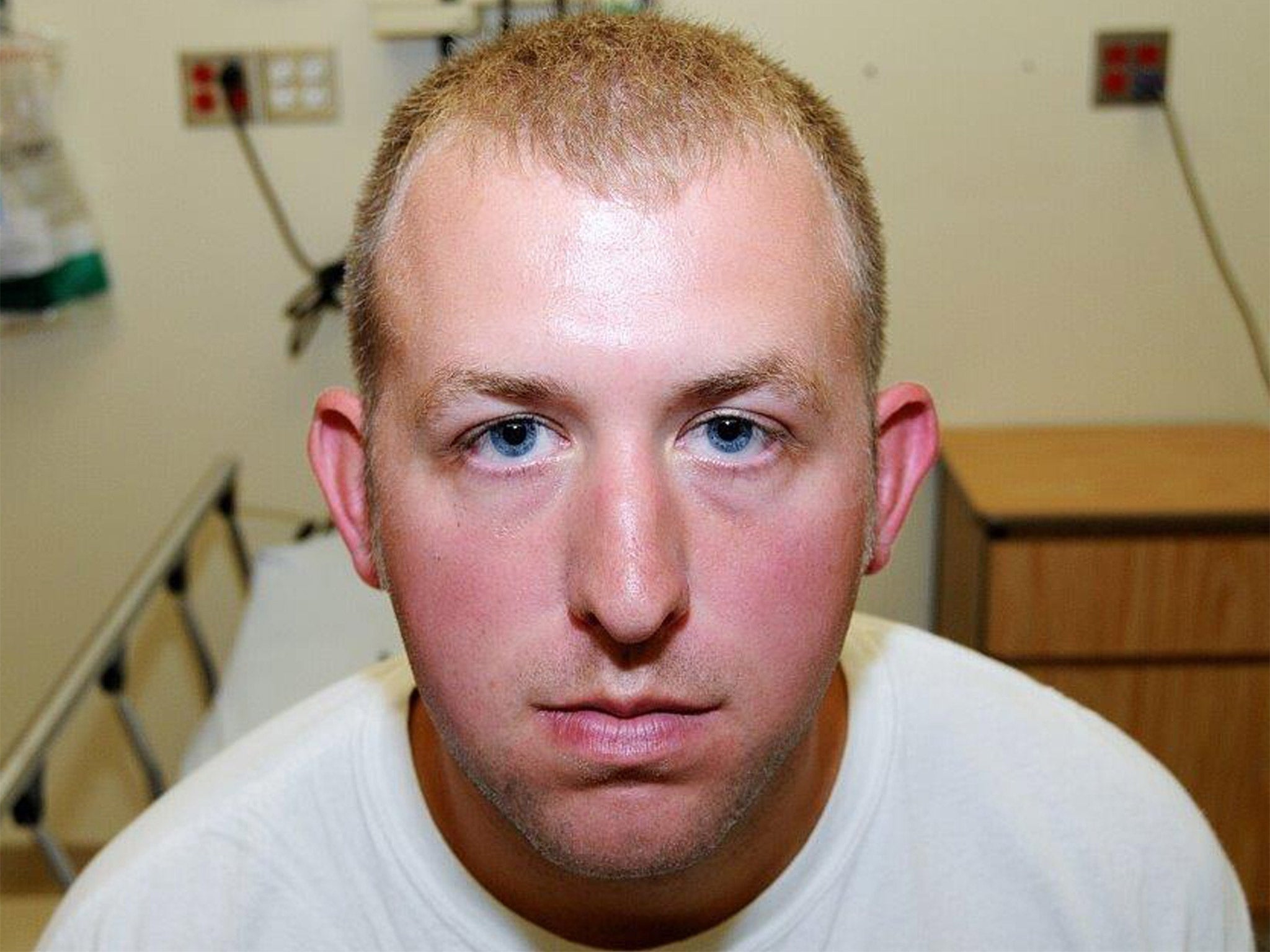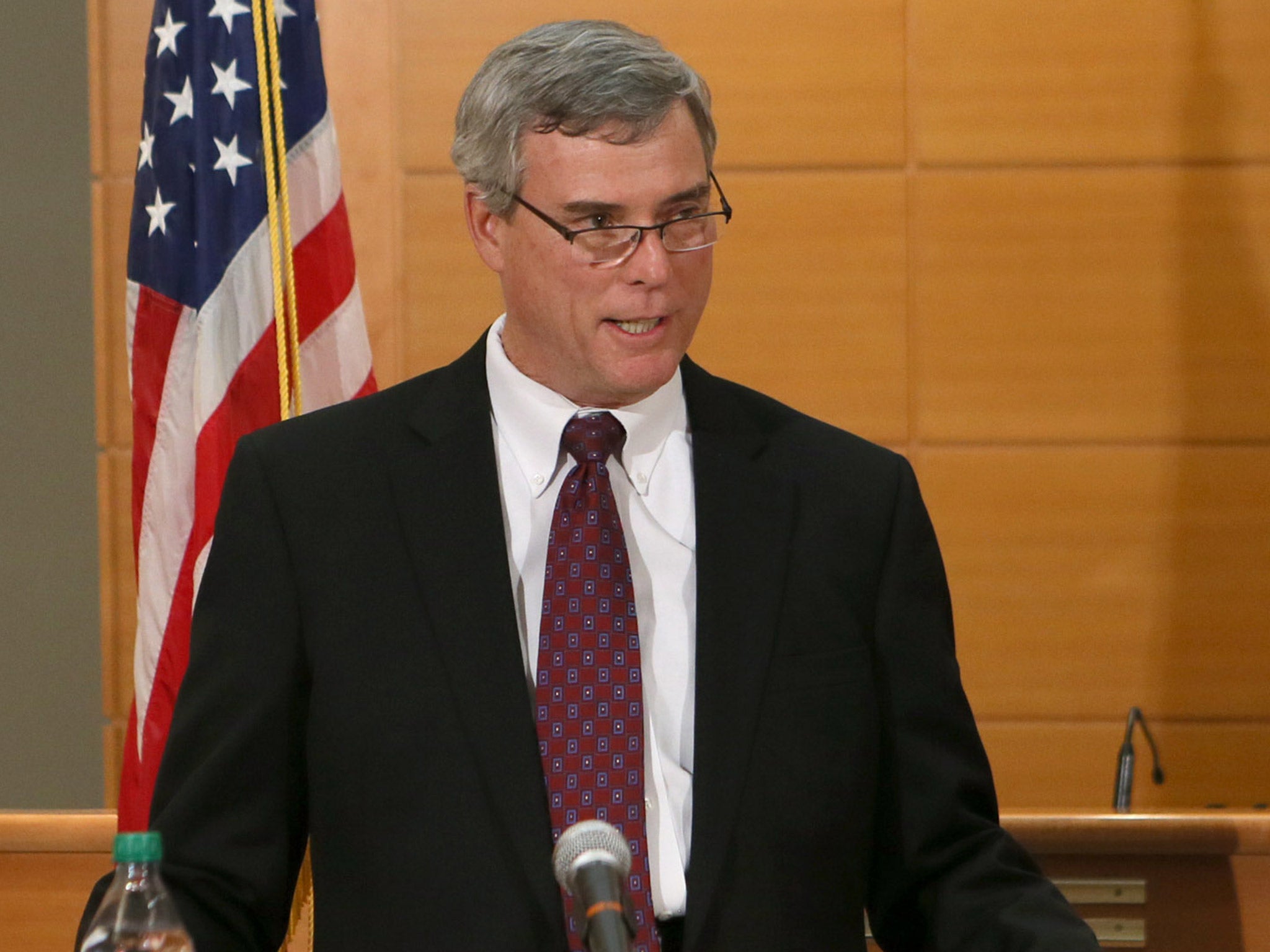Michael Brown shooting: Ferguson juror sues for right to speak out over claims decision not to indict Officer Darren Wilson was unanimous
'Grand Juror Doe's' lawyers say the gag order ought to be lifted given the case's uniquely high profile
A member of the grand jury that declined to charge Ferguson police officer Darren Wilson in the fatal shooting of Michael Brown has demanded to be allowed to speak publicly about the case. The juror, known only as “Grand Juror Doe”, filed a lawsuit asking a federal court to exempt him or her from the lifetime ban on grand juries discussing their deliberations.
The suit alleges prosecutor Robert McCulloch, who oversaw the case, mischaracterised the proceedings when he said all the jurors agreed with the decision not to indict Officer Wilson. Brown was shot at least six times during an altercation in Ferguson, Missouri on 9 August, despite being unarmed. Mr McCulloch said the panel had found insufficient evidence to bring charges.
The shooting triggered demonstrations in cities across the US, and a national conversation about the relationship between law enforcement and the African-American community.

The complaint, filed by the Missouri branch of the American Civil Liberties Union (ACLU), asks the court to grant an injunction permitting the juror to speak out. “In plaintiff’s view, the current information available about the grand jurors’ views is not entirely accurate,” the lawsuit says.
Mr McCulloch, the St Louis county prosecutor, is named as the defendant as he would be responsible for charging a grand juror who spoke without a court’s permission. The suit alleges he presented evidence in a “muddled” and “untimely” fashion. Missouri governor Jay Nixon was criticised before the grand jury decision for not appointing a special prosecutor to oversee the case in place of Mr McCulloch, whose father, a police officer, was shot dead on duty.

The grand jury, which was made up of nine white and three black people, needed nine of its 12 votes in order to charge Mr Wilson with a crime. The process was abnormal in both its duration and the depth of evidence presented: the jurors met on 25 days over three months, and heard more than 70 hours of testimony from some 60 witnesses. After the panel made its decision, Mr McCulloch published much of the evidence it had seen.
Grand Juror Doe’s lawyers said the gag order ought to be lifted given the case’s uniquely high profile. The juror is eager to “contribute to the current public dialogue concerning race relations”, the suit said.
“Right now there are only 12 people who can’t talk about the evidence,” ACLU lawyer Tony Rothert said. “The people who know the most... are sworn to secrecy. What (the grand juror) wants is to be able to be part of the conversation.”
Join our commenting forum
Join thought-provoking conversations, follow other Independent readers and see their replies
Comments